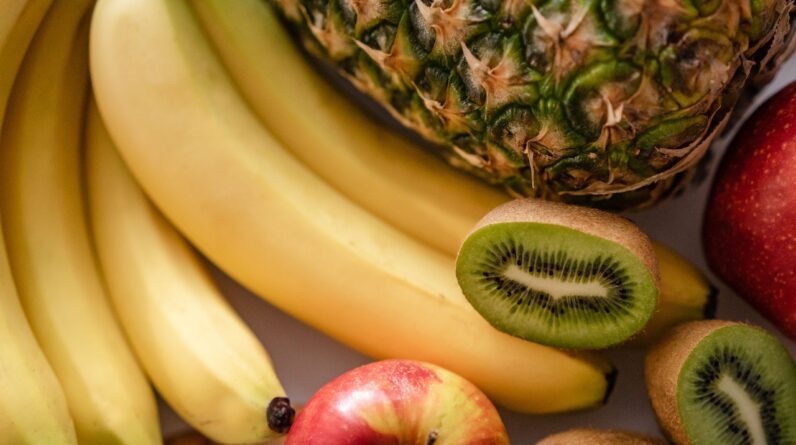
Understanding Weight Loss Basics
Factors Affecting Weight Loss
Weight loss is a complex process influenced by various factors, including genetics, hormones, age, and lifestyle choices. No single diet plan works for everyone, so understanding how your body reacts to different types of food is essential.
Importance of a Balanced Diet
A balanced diet is crucial for overall health and well-being. It provides your body with the necessary nutrients to function efficiently while promoting a healthy weight.
Components of the Best Diet Plan
Macronutrients
Protein
Protein is essential for building and repairing tissues, as well as maintaining muscle mass during weight loss. A high-protein diet can help reduce hunger and increase satiety, making it easier to stick to your plan.
Carbohydrates
Carbohydrates are the body’s primary source of energy. Opt for complex carbs like whole grains, fruits, and vegetables for sustained energy and better weight loss results.
Fats
Healthy fats like monounsaturated and polyunsaturated fats can help you feel fuller and support nutrient absorption. Include sources such as avocados, nuts, and olive oil in your diet.
Micronutrients
Vitamins and minerals are essential for various bodily functions. Ensure you consume a diverse range of fruits, vegetables, and other nutrient-dense foods to meet your micronutrient needs.
Hydration
Drinking plenty of water can help curb your appetite and support weight loss efforts. Staying hydrated also aids in digestion and helps your body efficiently process nutrients.
Popular Rapid Weight Loss Diet Plans
Low Carb Diets
Low carb diets, such as the Atkins or South Beach diet, focus on reducing carbohydrate intake and increasing protein and healthy fats. These diets can promote rapid weight loss by reducing insulin levels and encouraging the body to burn stored fat.
Intermittent Fasting
Intermittent fasting involves periods of eating and fasting to reduce overall calorie intake. It can help improve insulin sensitivity, promote fat loss, and improve metabolic health.
Ketogenic Diet
The ketogenic diet is a low-carb, high-fat diet that shifts your body into a state of ketosis, where it burns fat for energy instead of carbs. This diet can lead to rapid weight loss and improved health markers.
Designing Your Own Rapid Weight Loss Diet
Determining Your Calorie Needs
To lose weight, you must
consume fewer calories than you burn. Determine your daily calorie needs based on factors like age, weight, height, and activity level, then create a calorie deficit to promote weight loss.
Choosing Foods Wisely
Focus on nutrient-dense, whole foods that provide your body with essential nutrients while keeping you satisfied. Opt for lean protein sources, whole grains, colorful fruits and vegetables, and healthy fats.
Regular Exercise
Incorporate regular physical activity into your daily routine to boost your weight loss efforts. Aim for a mix of cardio, strength training, and flexibility exercises for optimal results.
In Summary
The best diet plan for rapid weight loss is one that meets your individual needs, preferences, and lifestyle. A balanced approach that includes a calorie deficit, nutrient-dense foods, and regular exercise will help you achieve and maintain your weight loss goals. Remember to consult with a healthcare professional before starting any new diet plan.
Frequently Asked Questions
- How much weight can I expect to lose on a rapid weight loss diet?
The amount of weight you can lose depends on factors like your starting weight, calorie deficit, and level of physical activity. However, a safe and sustainable rate of weight loss is typically 1-2 pounds per week.
- Can I lose weight without exercising?
While it’s possible to lose weight through diet alone, incorporating exercise into your routine can help you achieve faster and more sustainable results. Exercise also offers numerous health benefits, such as improved cardiovascular health and increased muscle mass.
- Is a low-carb diet the best option for rapid weight loss?
Low-carb diets can be effective for rapid weight loss, but they are not the only option. Other strategies like intermittent fasting and calorie restriction can also yield fast results. The key is to find a plan that suits your lifestyle and preferences.
- How long should I follow a rapid weight loss diet plan?
The duration of a rapid weight loss diet plan varies depending on your goals and progress. It’s important to monitor your progress and adjust your plan as needed. Consult with a healthcare professional for personalized advice.
- What should I do if I hit a weight loss plateau?
Weight loss plateaus are common and can occur for various reasons, such as changes in metabolism or a decrease in muscle mass. To overcome a plateau, try adjusting your calorie intake, increasing your physical activity, or changing your exercise routine.







